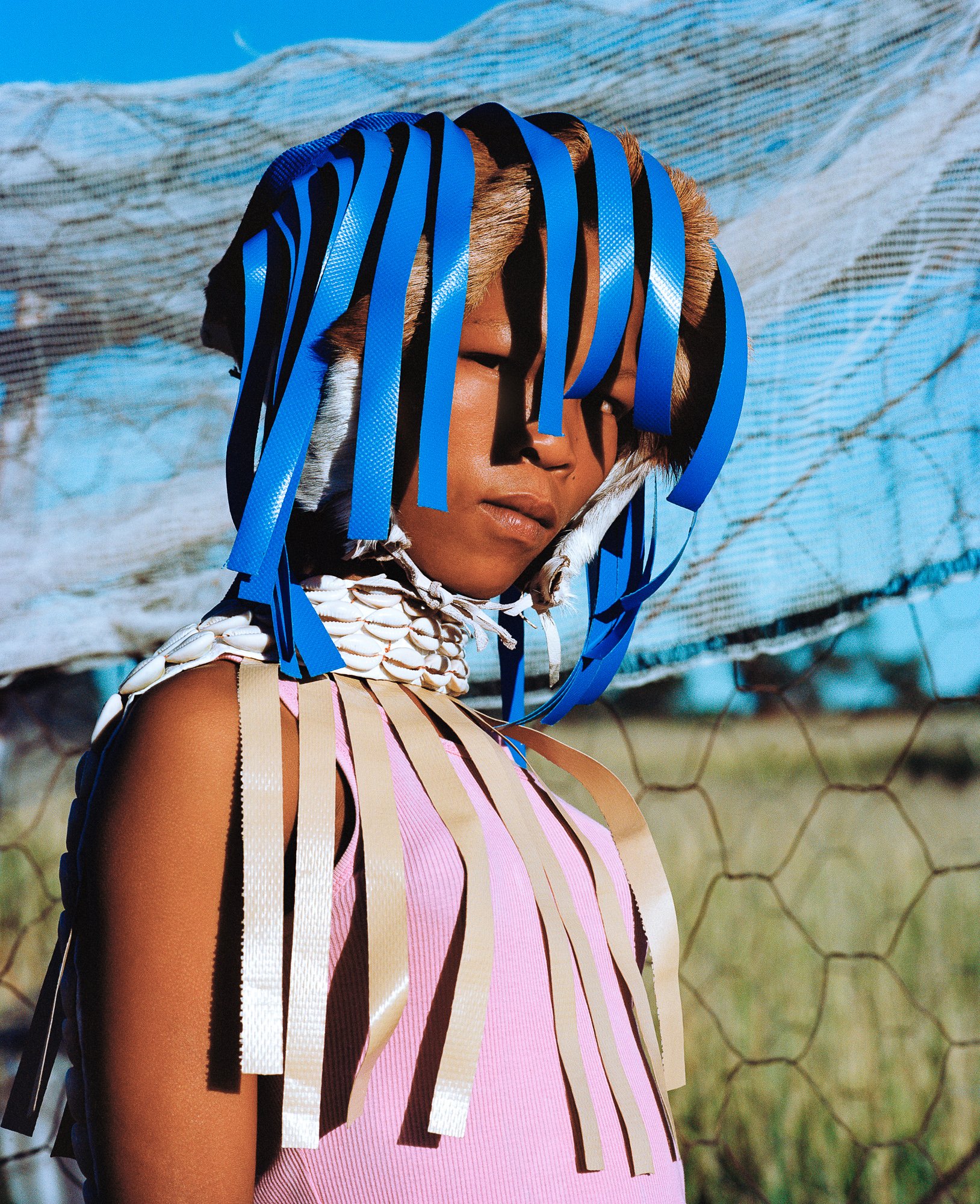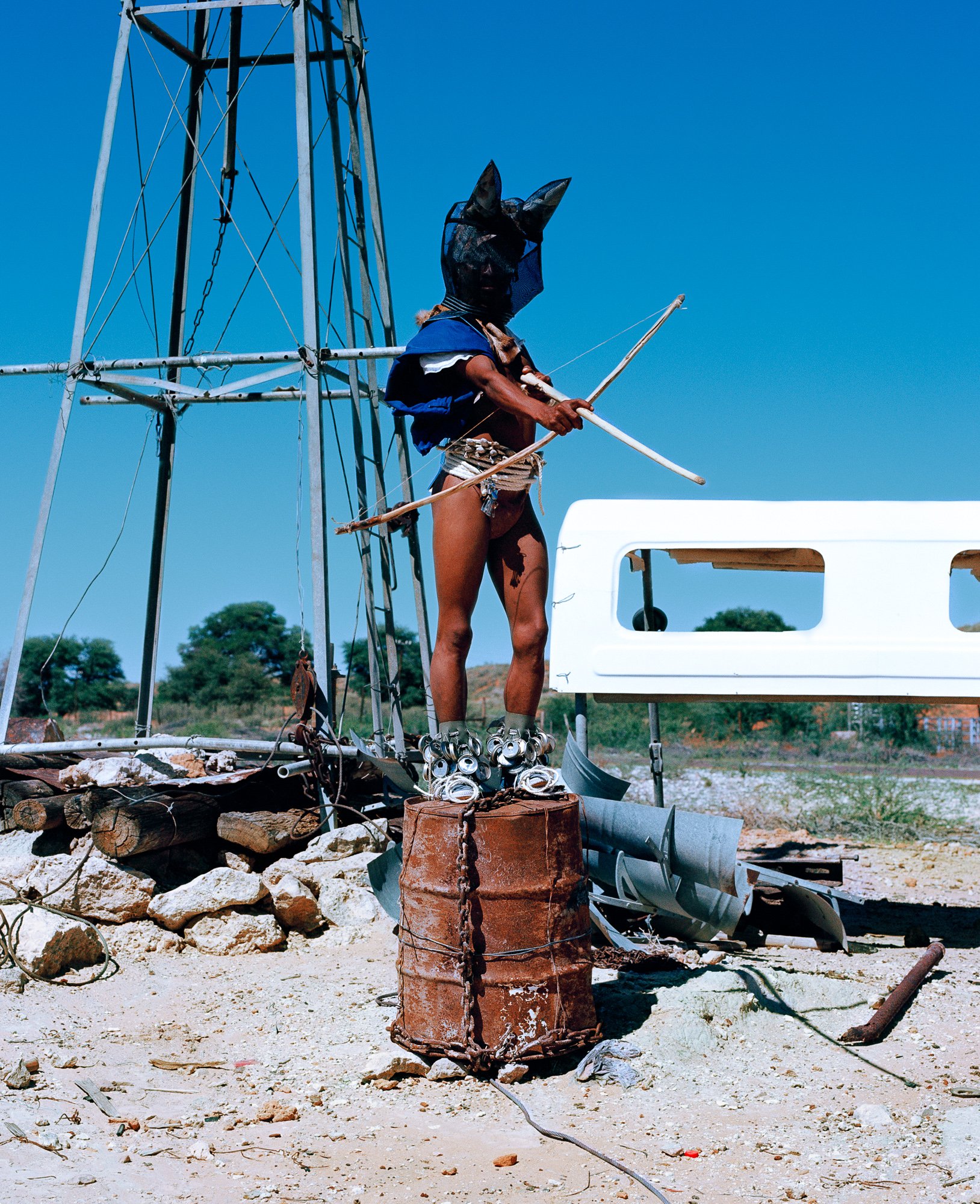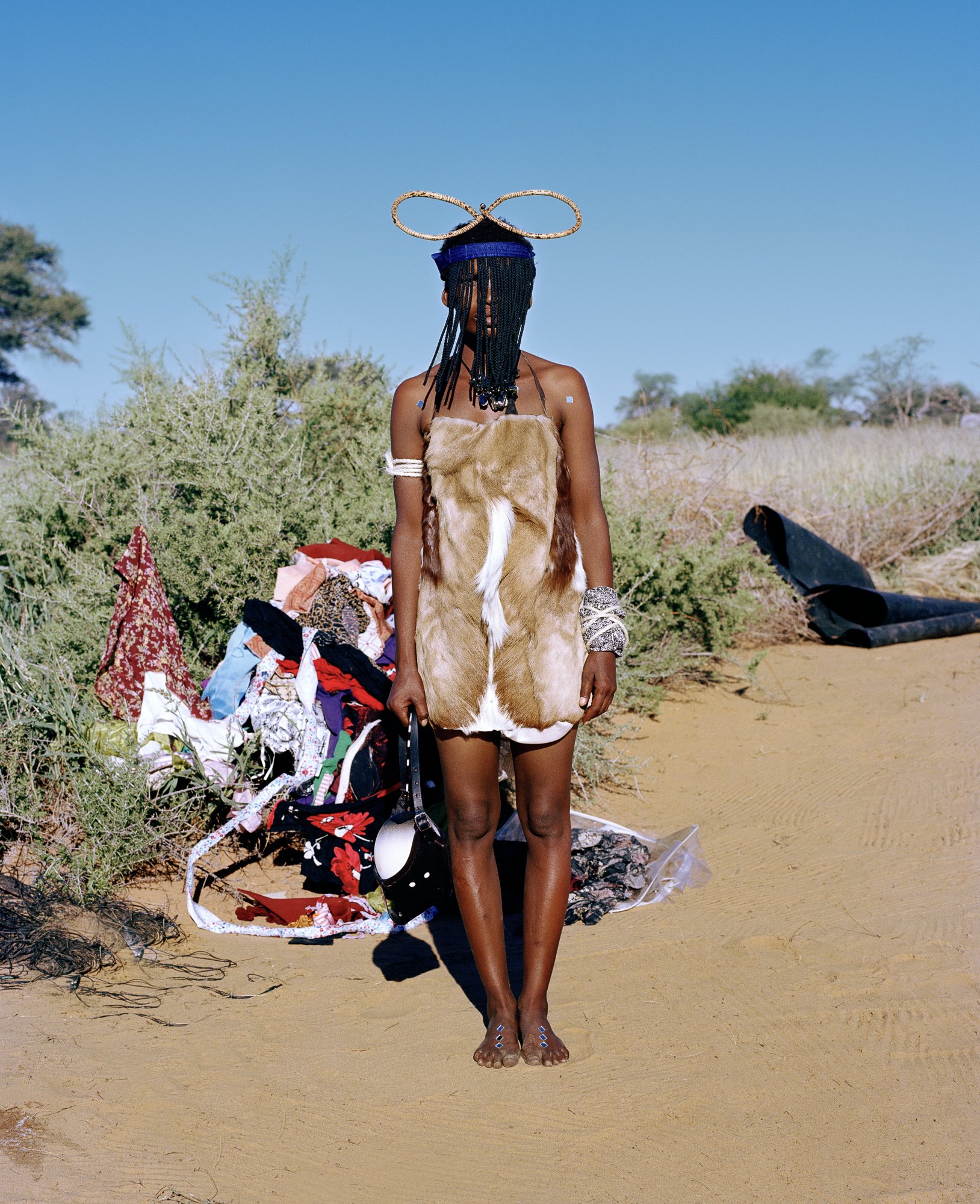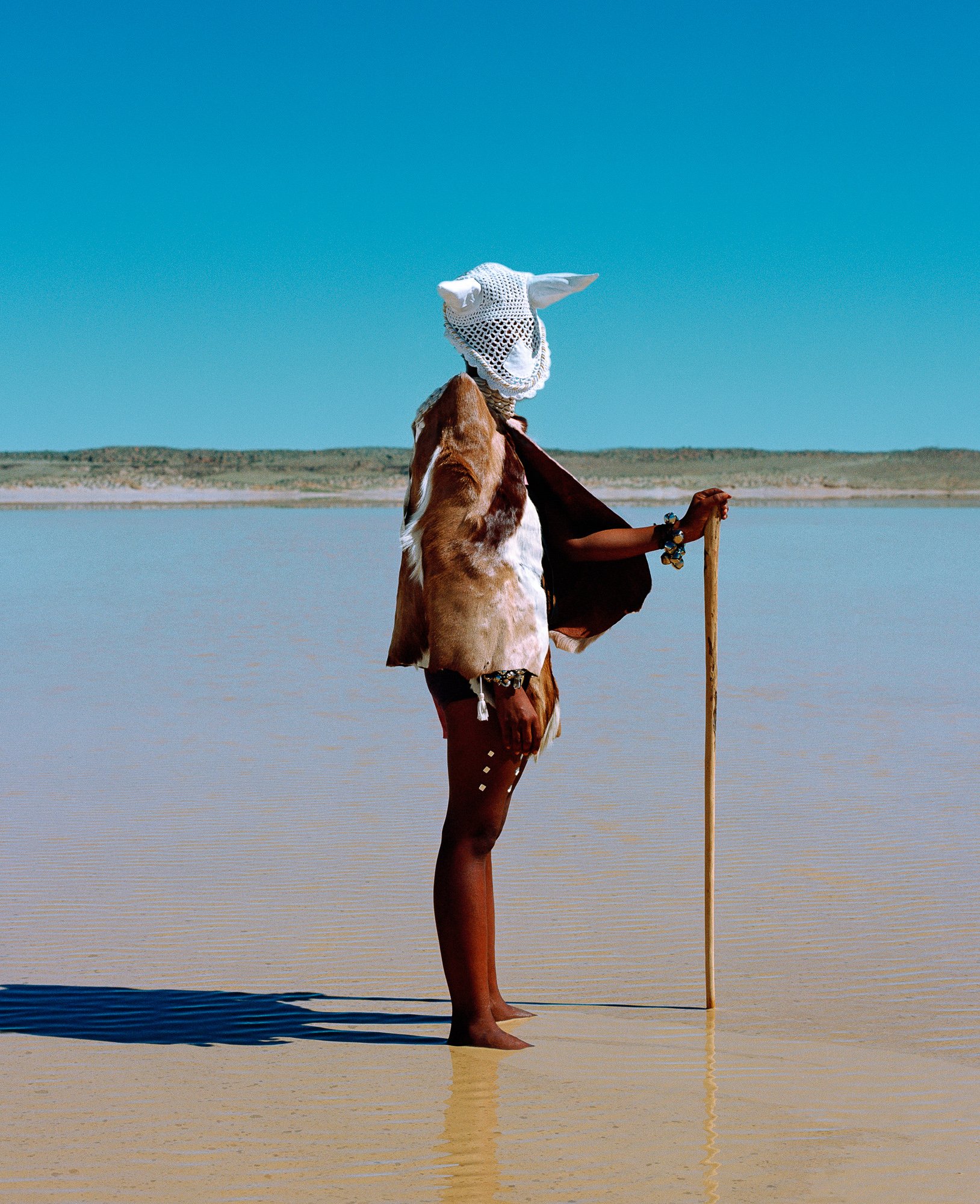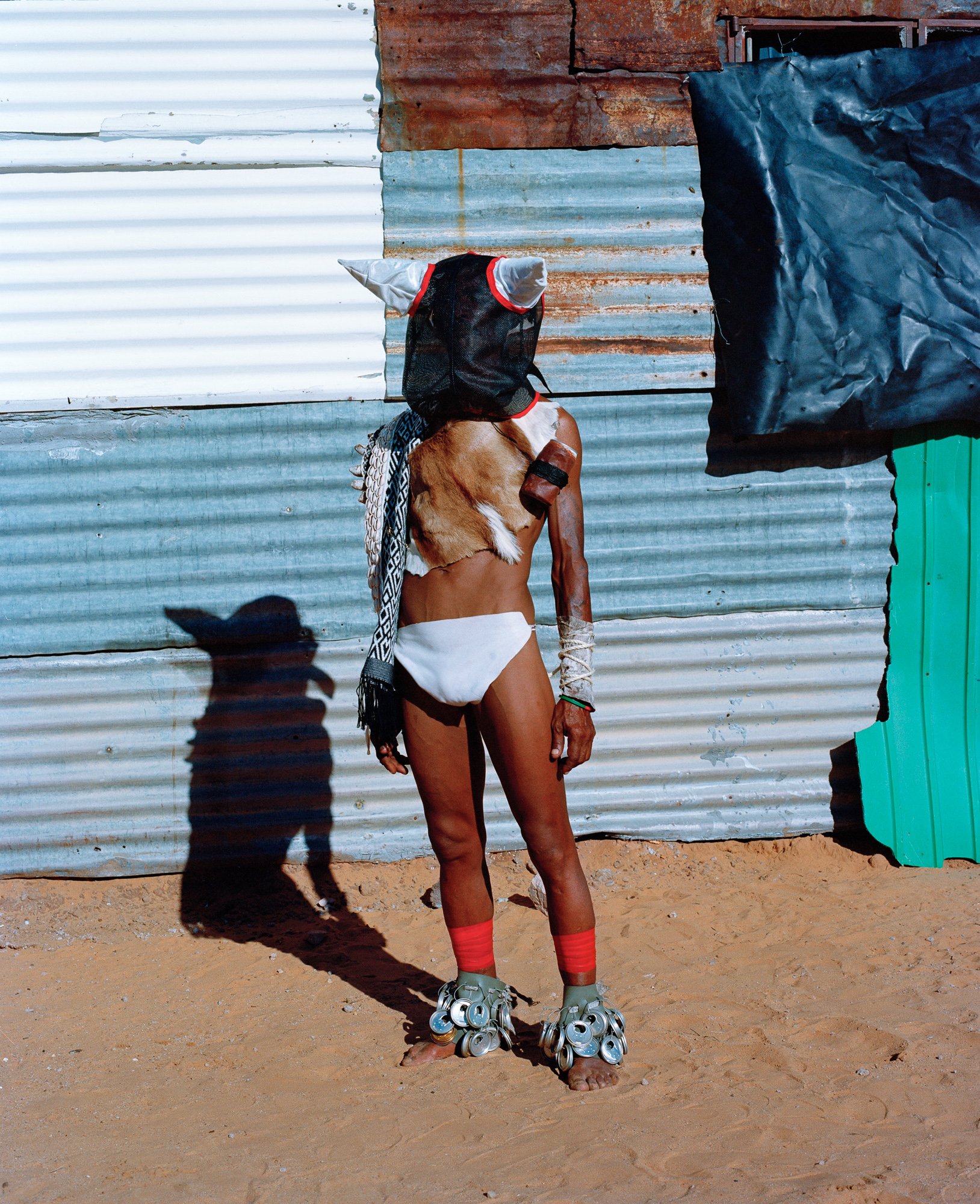Namsa Leuba
NAMSA LEUBA - 1982 Switzerland / Guinea
Namsa Leuba was born to a Guinean mother and a Helvetian father. She grew up on the shores of Neuchatel’s Lake in Switzerland. In 2011, she graduated from ECAL/University of Art and Design Lausanne, with a Bachelor's in Photography. Her work has since been published in numerous magazines and has been exhibited in places as diverse as Hong Kong and New York.
Leubas work juxtaposes, re-works, challenges, and examines African identity through Western eyes. She centers on not just preconceived notions of Africa from a Western view but the aesthetics of abstract configuration and encourages a conversation around that which is normal in one culture and that which becomes decidedly the other as viewed by the West.
Spanning documentary, fashion, and performance, Namsa Leuba creates a visual imaginary that explores the signs and symbols of her cultural heritage, from rituals and ceremonies to statuettes and masquerades. By composing the different elements, Leuba dissembles cultural paradigms and rebuilds them through staged interventions. Whether executed on location in the artist’s ancestral hometown of Guinea or in the constructed studio environment, Leuba’s projects combine an anthropological interest in traditional customs with an aesthetic that is informed by fashion and design sensibilities. Adopting a theatrical approach with careful attention to props, colors, and gestures, Namsa Leuba questions the relationship between fact and fiction, action and representation, the sacred and the profane, and construction and deconstruction.
KHOI SAN, ZULU KIDS, and THE KINGDOM OF MOUNTAINS series show Leuba's anthropological interest in traditional customs, ceremonies, and rituals with an aesthetic informed by the world of fashion and design, which she works in concurrently. Leuba orchestrates her motifs in a historically correct geographical setting and includes various props, a versatile color scheme, and gestures as tools to examine the tension between opposing forces, for example fact and fiction, action and representation, sacredness, and secularity. Her formative process encourages a conversation around that which is normal in one culture and that which becomes decidedly the other as viewed by the West. The technique can be described as elemental compositing and the collages are another example of how Leuba dissembles cultural paradigms and rebuilds them through staged interventions. Fashion and fine art photography is mixed without reservation and help create a dynamic exchange in a liberating space, where all forms of expression is allowed.


